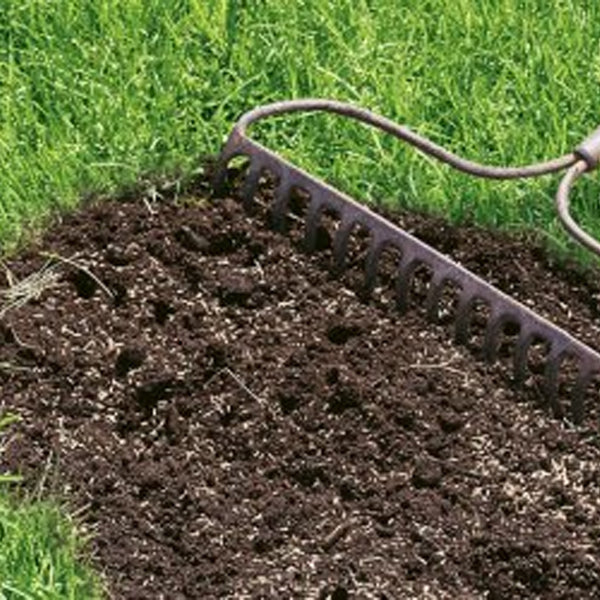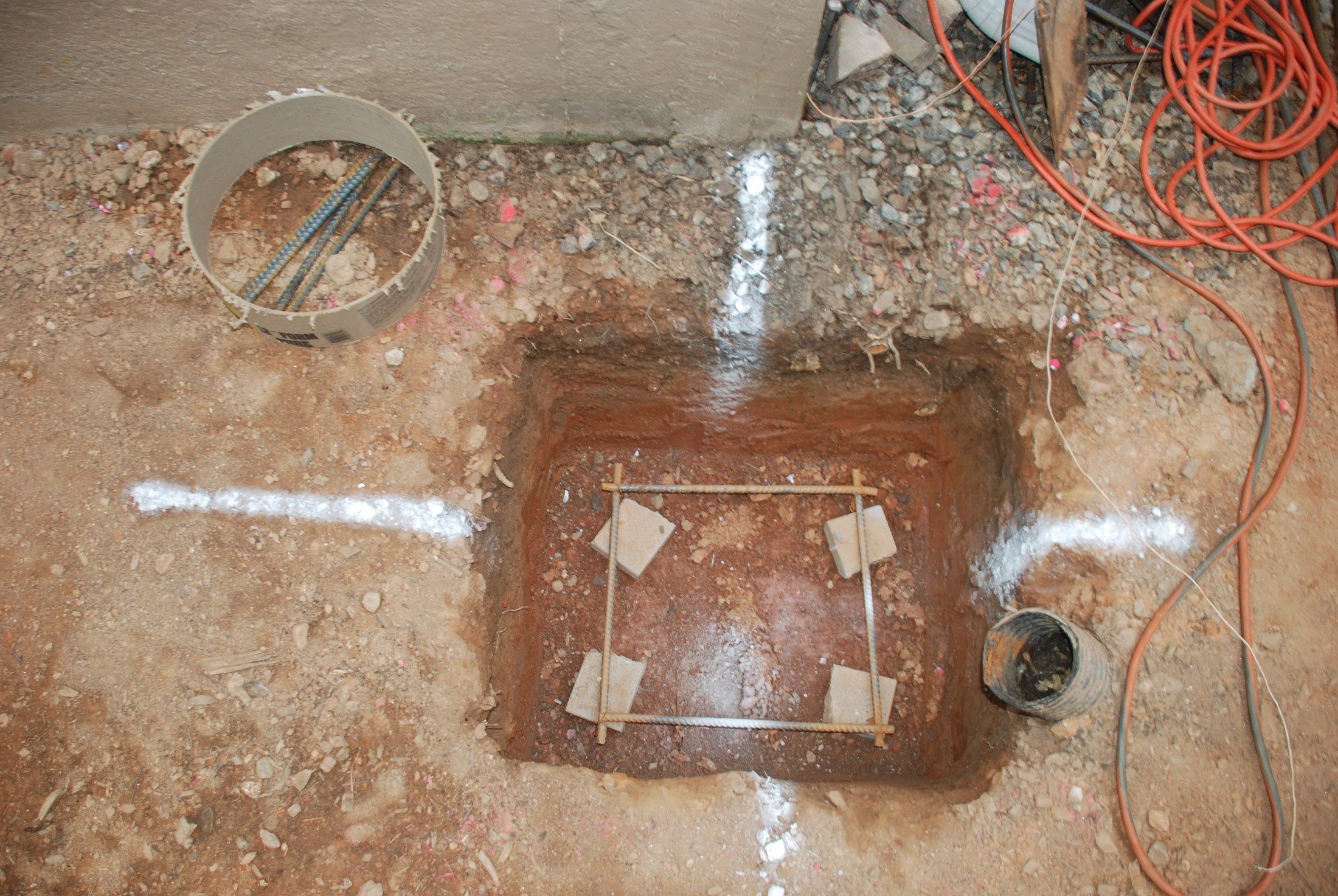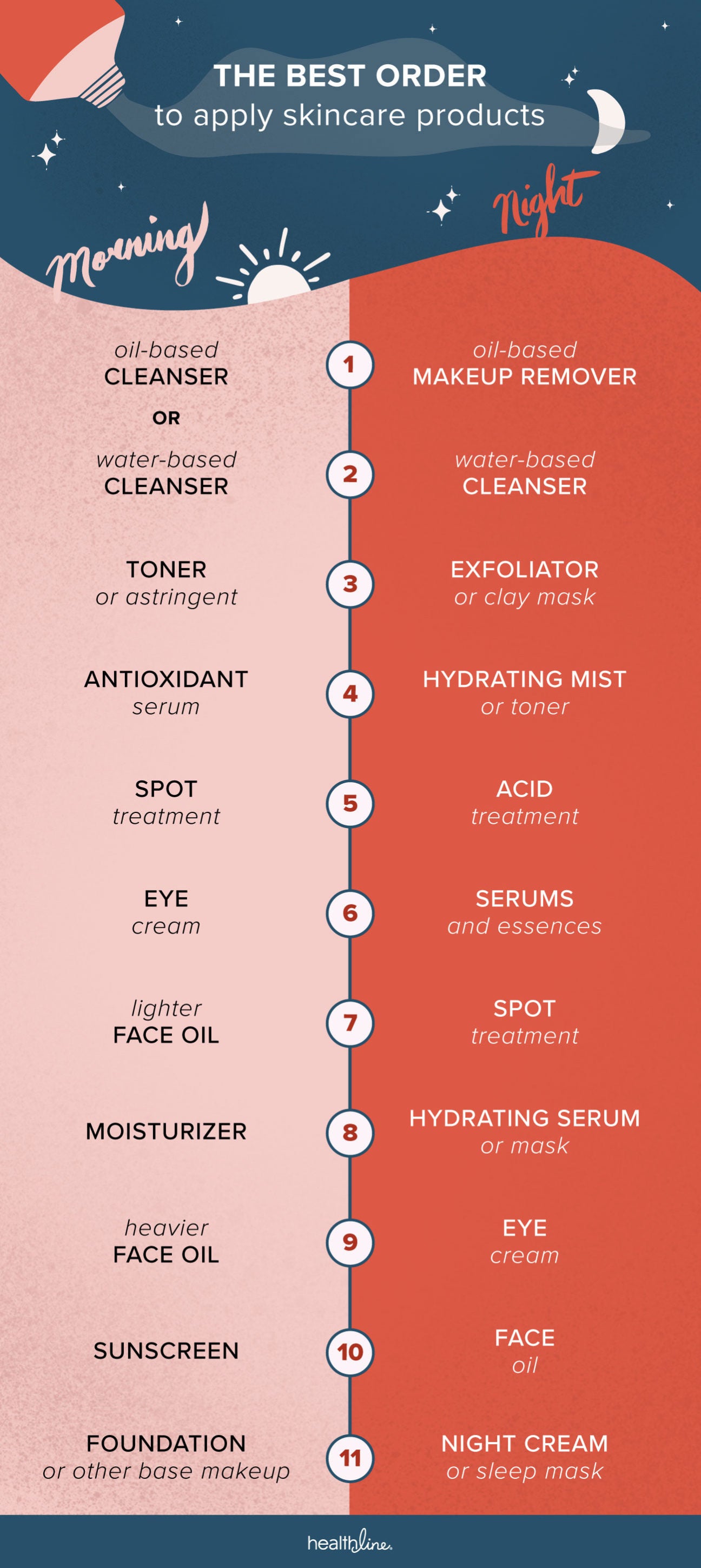So if you have a patch of sorry soil in your yard how do you fix it? Lawn aerators make small holes in the soil but they actually compact the soil in the individual holes. Grass seed will germinate more readily in holes created by aerators but aerators will not correct compacted soil. Hard soil needs to be disturbed at least 10 to 12 inches deep. This is best done by manual digging with a shovel or digging fork or by use of a backhoe. Most of the lawn grasses we grow are not native to North Carolina and need a soil pH of 6.0 or higher.
Sorry soils will have a pH of 5.0 or much lower and few plants will grow in soils with a low pH. Heavy or hard soils contain a high percentage of clay and low amounts of silt and sand, resulting in compacted soil that becomes difficult to till. This proves especially true when the clay soils become devoid of organic material, which lightens soil texture by preventing all of the clay particles from sticking together. Improving a clay soil lawn or garden by adding decomposed organic material, such as compost, not only improves workability but increases fertility.
To fix compacted soil, which is soil that has little to no air space, break it up to make it hospitable for your plants again. Start by shifting livestock, machinery, vehicles, and foot traffic away from the compacted area to give the soil a rest. If you use the compacted area for farming or gardening, move your plants somewhere else for at least 1 growing cycle. Instead, plant a cover crop, like winter wheat or ryegrass, to allow the roots to break up the soil.
For smaller, grassy areas that are compacted, use a small metal garden fork to poke holes in the soil so air, water, and roots can enter the area. However, when tackling a larger area, use a rototiller with an aeration attachment. As an all-natural probiotic soil amendment that improves the environment of clay soil and encourages microbial activity, ClayMend works to restructure the dirt. The organic acids draw the tiniest particles together, those that block air and water from penetrating the soil. Microbial activity then binds them together forming larger particles more closely resembling sand and silt found in loam.
This improves the soil environment promoting even more microbial activity. The larger particles allow air, water, nutrients, and plant roots to penetrate the soil resulting in healthier plant growth. In addition nutrient holding clay particles are still able to store nutrients where sand and silt in loam are not. Mulching – Clay soils can tend to speed water runoff because water isn't absorbed as quickly into clay soils as it is other soils. Clay soils also tends to stick to the bottoms of your shoes, which can make a mess when you go indoors.
By adding a layer of mulch to clay soil, you not only help keep the house clean, but can reduce the number of weeds that sprout. As mulch decomposes,it will enhance nutrition and water retention, which ultimately allows for better plant growth. Mulch will slow down water run-off allowing clay soil more time to absorb, and store, water. A layer of mulch is also cooler than exposed soil which helps to reduce temperatures overall in the garden. Soils have three basic layers called A, B, and C horizons. The A horizon is the top soil, and it should be loose and easily dug or tilled.
When it rains water should flow through good top soil freely. When the top soil is removed or washes away through erosion, the B horizon is what is left. Here in the Piedmont of North Carolina, the B horizon will be red or orange in color and it will be clay. Red clay is much more difficult to work with than a sandy top soil, and it is easily compacted and can be very difficult for water to penetrate.
The C horizon is usually a combination of rock and clay and is what is known as soil parent material. Some soils in the southeast may also have an O horizon, which stands for organic matter. Organic matter is composed of plant debris and decomposing plant parts and is found at the top of the top soil.
It is difficult to maintain an O horizon in the south because organic matter breaks down rapidly in our heat and humidity. It is rare to find an organic layer in cultivated or plowed soil because the cultivation speeds up the decomposition of organic matter. Vegetation holds the soil in place, but also adds organic matter and the roots help open up the soil and provide food for soil improving earthworms. While wet earth by itself isn't easy to dig, one can use how moisture affects the dirt to their advantage.
Damp earth can clump up, become heavier, and stick to the blades of your shovel. However, clay soils hard on the surface can break up after digging 10 inches into the ground. This wetting process underneath the top layer of earth allows you to lift entire earth pillars with a post hole digger easily. Gypsum is easily applied to the soil surface with a regular lawn spreader.
It's an ideal amendment for improving soil structure and relieving compaction in existing lawns and gardens. When I first start a garden and double dig my rows (3' wide minimum) I will add DECOMPOSED organic matter and fertilizer and mix sorta kinda. Without using anything else this makes raised beds. Sometimes there is a lot of moisture in the soil but it will look dry to you. My beds for plants are always ALWAYS raised with trenches at the bottom of the slopes to take excess water away to where ever I dictate. No matter what kind of soil I have, I make these raised beds.
They start out a couple of feet high with the fluffy soil and then they are formed and compacted to get rid of large air pockets. Cover crops, also called green manure crops, help loosen clay or compacted soils with their roots and by adding organic matter. They also prevent nutrient loss and erosion during the non-growing season. Leguminous cover crops, such as winter rye, alfalfa, hairy vetch and clover, which add nitrogen to the soil, are usually planted at the end of summer or early fall. Healthy soil typically is more than 40 percent pore space, with large pores that promote drainage and small pores which help store water. This combination enables air and water to penetrate, promotes good drainage, and allows soil organisms to breathe and plant roots to grow.
Machinery, foot traffic and pounding rain compact the soil and make life in the soil difficult. Compacted soils can flood and also be susceptible to drought, since water runs off rather than infiltrating. You can repair compacted soil by rebuilding its spongy structure.
Some people claim you can loosen clay by adding gypsum to it. The theory is that gypsum binds clay particles together to make bigger particles, providing more space for air, water, and roots. While this works to some extent, adding gypsum alone isn't enough for most gardens. The best way to loosen and improve clay soil is by adding lots of organic matter. Compaction is most likely to occur with heavier soils like clay and loam, but when heavy equipment is used, sandy soils can become compacted.
These are soil particles that are packed closely together. The problem may be compounded by events that have happened to the soil over the course of years. The pore spaces are reduced to the point that air and water cannot move freely and plant roots cannot grow easily into the surrounding soil.
The soil could remain overly wet longer than is healthy for the plants growing there. Amending your soil properly can overcome heavy, compacted clay and get it back on track for healthy lawn and garden growth. Adding materials such as organic compost, pine bark, composted leaves and gypsum to heavy clay can improve its structure and help eliminate drainage and compaction problems. Walking on your lawn or garden when its wet is a common cause.
Heavy, beating rains also drive clay particles together. Salts from fertilizers and winter de-icing solutions build up in heavy clay as well. Top-dressing planting beds with several inches of compost will improve lightly compacted soils.
Earthworms and other soil fauna will gradually pull it down into the soil, loosening it and improving water-holding capacity. A 2- or 3-inch layer of shredded leaf mulch or wood chips will provide similar benefits. When using this method, adding a layer of an inch or two of sand or gravel on top of the clay will allow plants that cannot normally grow in clay to thrive. This is because some or most of their root system is above the clay soil, but the tips of the roots can still pull nutrients and water out of the clay.
Instead of gypsum, consider core aerifying in spring, summer or early fall to reduce the compaction and improve plant health. Aerifying with large half-inch hollow tines and punching about 25 holes/square foot will produce good results. Very compacted soil can benefit from several corings each year . This does not minimize the benefit of have a high Ca and Mg level reading in your soil test, but coring does physically reverse a physical compaction of soil particles. Yes, coring is an expensive service to buy, and most lawns really don't need it; but it won't hurt. And if the soil is compacted, it's usually the best solution to the stifled growth.
Your soil test or extension agent can help you determine the right amount of organic matter for your soil. In following years, build on your efforts by adding 1 to 3 inches of organic mulch as a topdressing each year.1 As it decomposes, it continues to gradually improve clay soil. Clay's potential as one of the best soil types for plant growth lies in its unique properties. Managed well, clay soil typically requires less irrigation and less fertilizer, and leads to healthier plants all around. Compacted soil and plants don't go well together.
How Do You Soften Hard Soil Without enough air space in soil, there's no room for water and nutrients to circulate, and the roots on your poor plants have nowhere to grow. The good news is that there are steps you can take to fix and prevent soil compaction. Below we'll walk you through how you can break up compacted soil, reintroduce air into it, and make it a welcoming home for your plants again. Common soil amendments include compost, grass clippings, straw, shredded leaves, rotted manure and dried seaweed. In a garden bed, the best way to introduce organic material without digging , is to apply layers on top and let nature do the work for you.
Simply pile your garden bed high with organic material – it can be wood chips, shredded paper, straw, chopped leaves, lawn clippings – whatever you can lay your hands on. It might be slow, but the wait will give you time to get to know your land before you plant. This is particularly helpful for heavy clay soils that make it difficult for grass roots to thrive.
Just as it is difficult for you to dig in compacted soil, it is also difficult for soil-dwelling organisms, like bugs and worms, to tunnel in compacted soil. You won't usually find many organisms living in compacted soils because they cannot get the air, space and nutrients they need to survive. Also, compacted soil makes it difficult for plants with delicate root systems to thrive. Very compacted soil tends to support only the growth of weeds, which have thick tap roots that can penetrate deeply into compacted soil and out-compete other plants. Commercial products, such as ClayMend, are also available to amend clay soil by introducing beneficial soil microbes and supplying them with nutrients. The company states that a blend of organic acids gathers ultra-fine clay particles and then microbes work to secure them together.
This process opens the soil, allowing it to breathe. The beneficial microbial activity increases and plant roots are able to establish themselves in the restructured soil. Nutrients that have been locked away become free to be attached to the organic material and the clay structures for easy access by the plant roots. Adding sand can be tricky and typically is not recommended to be added to clay soil. During this time you can apply gypsum to the surface area.
Gypsum is a naturally occurring mineral, Calcium Sulphate, which loosens compacted soil, with no negative impacts on soil pH. . Gypsum is most often available in powdered or granular form and can be spread over the area at the specified rate. After rain, the soil can be dug over with some compost and an optional second application of gypsum. Depending on how far into the dirt you can dig, either leave it to soften a bit longer or begin to dig holes for plants.
First off what does it mean that you have clay soil? It is difficult to know which kind of clay you have without doing a soil test. Usually your local county extension service can help you conduct a basic soil test.
This test will let you know what particular type of clay soil you have. Most heavy clay soils benefit from the addition of gypsum. It adds some nutrients but, more importantly, it loosens clay soils and makes it more workable.
Spread about 3 to 4 pounds of gypsum per 100 square feet over garden soil after it has been dug in the winter. Work it into the soil or allow it to be washed in by rain. To soften the hard soil, start by breaking up the top few inches as much as possible. Once you have raw broken soil, add a layer of compost, mixing it in with the broken up hard soil. Adding small amounts of water can also help to soften the soil, making it easier to dig and install a different landscape edging option.
You will need to work at it over the years by repeating the process though. Baked clay is almost impossible to break up, rotivate or dig, it's easier to spread the organic matter and grit and wait until the worms have done some of the work for you. A slightly faster option is to cover the soil with material that is full of soil microbes, as these will speed up the process.
This includes compost, worm castings, and manure – and less of the dense, harder materials such as wood chips, which take longer to decompose. Make sure to cover this 'active' compost etc with a layer of straw mulch to avoid it drying out as this will kill the useful microbes, which don't like hot sun. Deep watering once a week will also keep things moving. After about a month you'll notice a difference and, if you keep feeding your soil every spring and autumn, it will soon be full of life and all your plants will thrive.


























No comments:
Post a Comment
Note: Only a member of this blog may post a comment.